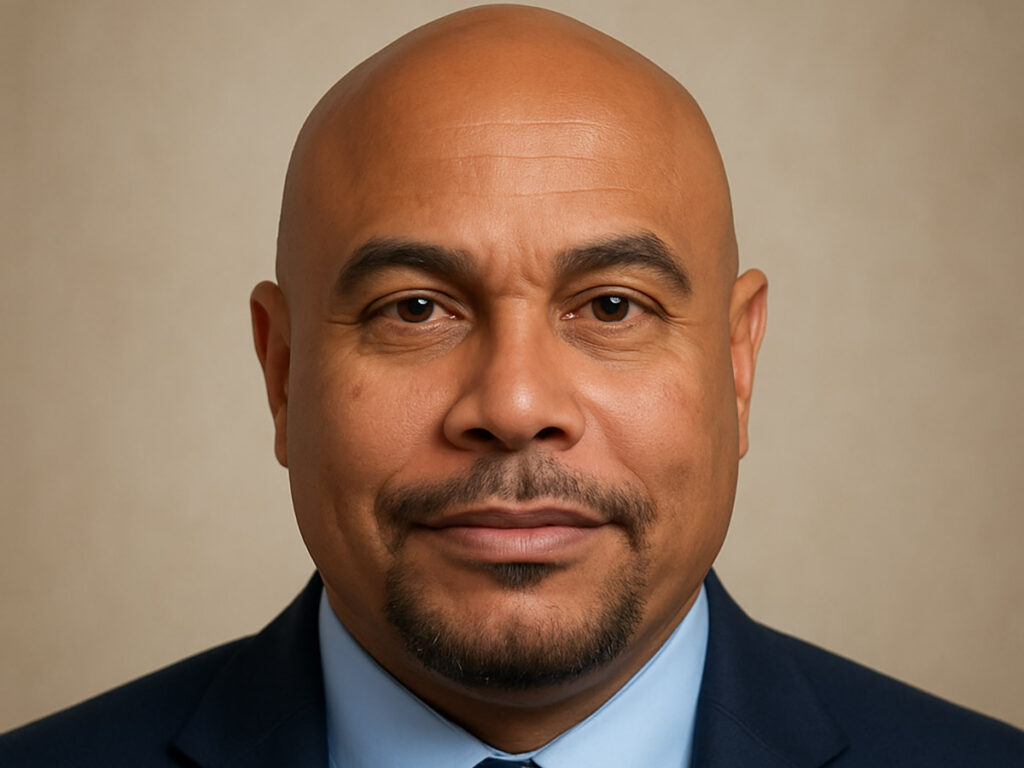
Harrell E Robinson MD has built a life defined by achievement, service, and leadership. Born in Thomasville, Alabama and raised in Florida, he grew up as the first male child among seven siblings in a family guided by faith and discipline. Four of the seven were high school valedictorians, including Dr. Robinson, who graduated at the top of his class from Oakwood Academy in 1970.
He went on to Oakwood University, earning cum laude honors in chemistry and biology, receiving both the Physics Award and a scholarship to study French. Choosing medicine over studying abroad, he entered Loma Linda University Medical School and completed an accelerated three-year program, graduating in 1977. He then trained in otolaryngology–head and neck surgery, facial plastic surgery, and laryngology.
In 1984, Dr. Robinson opened his ENT practice in Orange County, California, later building a surgery center and serving patients for more than 30 years. His humanitarian work began during residency with surgical missions in Bangkok and Cambodian refugee camps, inspiring the creation of Global Healing Inc., a nonprofit focused on building hospitals and delivering care to underserved communities worldwide.
Today, Dr. Robinson is CEO and CFO of ATR Law Group PLLC in Phoenix, Arizona, a firm he operates with his wife. He continues to lead philanthropic projects, including a decade-long partnership supporting the Mayne tribe in the Philippines.
A passionate golfer, cyclist, and artist, Dr. Robinson blends professional excellence with a lifelong commitment to global health and community impact.
From graduating medical school in an accelerated program to running both a thriving medical career and a law firm, Dr. Harrell E. Robinson’s life has been shaped by high achievement, discipline, and service. In this conversation, he reflects on the meaning of success and the habits that have driven his journey.
Q: How do you define success?
Dr. Robinson:
For me, success is balance. It’s not just about reaching professional goals. It’s about making an impact, taking care of your family, staying healthy, and continuing to learn. I’ve been fortunate to practice medicine, run a business, and work on humanitarian projects. But if one area consumed all my time, I wouldn’t call that success.
Q: Has your definition of success changed over time?
Dr. Robinson:
It has. When I was younger, it was all about achievement — grades, awards, professional milestones. I graduated medical school in three years because I was driven to move forward quickly. Now, I value sustainable progress. I’ve learned that building a surgery center or launching a hospital project takes patience and the right partners.
Q: What daily habits have helped you succeed?
Dr. Robinson:
I’m a big believer in structured mornings. I start with some form of physical activity — cycling, golf, or gym work — because it sharpens my focus. Then I tackle my most demanding work early in the day. I also end each evening by reviewing what worked and what needs adjustment tomorrow.
Q: Can you share an example from your career where success required adaptability?
Dr. Robinson:
During my residency, I went to Bangkok and worked in Cambodian refugee camps. The conditions were nothing like the controlled environment of a U.S. hospital. We had to improvise equipment, adjust techniques, and communicate through translators. That experience taught me that success often means working effectively with what you have, not waiting for perfect circumstances.
Q: What’s one belief you hold about success that others might not agree with?
Dr. Robinson:
That rest is a strategic tool. In medicine and business, people think you have to work until exhaustion. But when I schedule downtime — even just an afternoon painting or a round of golf — I return sharper and more creative.
Q: How do you handle setbacks?
Dr. Robinson:
I treat them as problem-solving challenges. When I expanded too quickly into a surgical center early in my career, I underestimated the operational demands. I had to scale back, regroup, and relaunch with a more sustainable model. The lesson was to align growth with infrastructure, not ambition alone.
Q: What advice would you give someone who is struggling to define their own success?
Dr. Robinson:
Identify your core values first. For me, faith, service, and excellence are at the center of everything. Then build your goals around those values. It’s easier to stay motivated when your goals align with what matters most to you.
Q: Is there a unique strategy you use to keep moving forward?
Dr. Robinson:
I approach projects like building hospitals the same way I approached surgery — start with a clear plan, but be ready to pivot if conditions change. In Laos, for example, we had to redesign our building plans based on local construction capabilities. Flexibility doesn’t slow you down; it keeps the project alive.
Q: What’s one thing you repeatedly do that you recommend others try?
Dr. Robinson:
Schedule time for humanitarian work or community service like you would a business meeting. If you don’t put it on the calendar, it will always get pushed aside.
Q: Has there been a moment when you felt you’d truly achieved success?
Dr. Robinson:
One was seeing the impact of our long-term support for the Mayne tribe in the Philippines. We’ve been working with them for nearly a decade, providing food, clothing, and shelter. The relationships built over time are proof that sustained commitment brings lasting results.
Dr. Robinson’s story shows that success is less about speed and more about sustainable achievement — balancing personal growth, professional excellence, and service to others.
